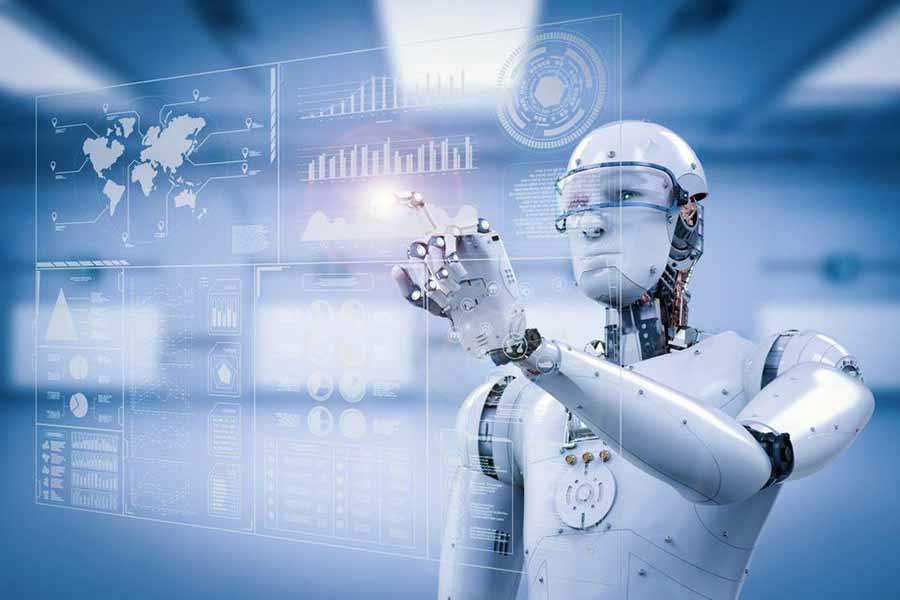Artificial intelligence will be used to take over our jobs if our jobs involve rules, pattern recognition, non-cognitive interpretation, and repeatable tasks. While machine learning is still in its infancy, it will not be long before artificial intelligence becomes mainstream.
Let me illustrate with two examples:
Researchers have unsuccessfully tried to use artificial intelligence to help us pick fruit. There are so many variables for machine coding and learning to take place that most attempts to automate fruit-picking using artificial intelligence have been failures. Yet time will tell whether they will ultimately be successful in programming machines to recognize ripe fruits and the position of these ripe fruits on the branches.
On the other hand, researchers were able to codify all medical knowledge known to humanity. At a press of a button, a computer spits out the best medical diagnosis based on a sequence of if-then logical questions. It’s like a decision tree where computer processing power can plow through millions of facts to find that one unique solution through rule-based thinking.
In fact, rules, pattern recognition, non-cognitive interpretation, and repeatable tasks could reasonably be codified within clear parameters and sequences. They are great candidates for conversion into artificial intelligence for many to use repeatedly.
So the bottom line is that if your job involves some or all of these criteria, then your job can most likely be replaced by artificial intelligence.
For instance, the app that can determine whether your body mole is cancerous works on the basis of pattern recognition against a huge library of cancer-causing moles. If there is a perfect match with any given mole pattern, then there is an alert given out for a further test to be conducted.
It’s not humanly possible to remember all possible combinations of cancer-causing moles. But with the help of artificial intelligence, we are able to precisely pick out which moles have cancer.
This automated process will eliminate the need for tedious human analysis of patterns and information because machines will do this matching much faster and with much better accuracy and precision.
All doctors (and medical practitioners) need to do is to confirm a diagnosis given by artificial intelligence and make decisions about treatments more accurately.
If your job is non-routine, heavily cognitive-driven, involves human interaction, and is totally dependent on uncontrollable factors like those presented by the environment and weather, then your job is safe from artificial intelligence.
In our example, fruit-pickers will be safe.
So, too, are counselors and coaches – people who deal with people.
McKinsey Global Institute’s report, Skill Shift: Automation and the Future of the Workforce, predicts what jobs would most and least likely be automated:
- Higher cognitive: these skills include advanced literacy and writing, quantitative and statistical skills, critical thinking and complex information processing. Doctors, accountants, research analysts, writers, and editors typically use these.
- Social and emotional, or so-called “soft skills”: these include advanced communication and negotiation, empathy, the ability to learn continuously, to manage others and to be adaptable. Business development, programming, emergency response, and counseling require these skills.
- Technological: this embraces everything from basic to advanced IT skills, data analysis, engineering, and research. These are the skills that are likely to be the most highly rewarded as companies seek more software developers, engineers, and robotics or scientific experts.
- Physical and manual skills – which encompass tasks that could be performed by relatively unskilled labor, such as drivers and assembly line workers, as well as skilled workers, including nurses, electricians, and craftspeople.
- Basic cognitive abilities – like basic literacy and numeracy, which are needed by workers such as cashiers, customer service staff, and those involved in low-level data input and processing, such as typists and clerks.
If you want to future-proof yourself from the potential negative impacts of artificial intelligence, then you need to work in jobs that require a lot of cognitive abilities, are non-rule-based, require no pattern recognition, and require significant human interpretation, interaction, and judgment.

